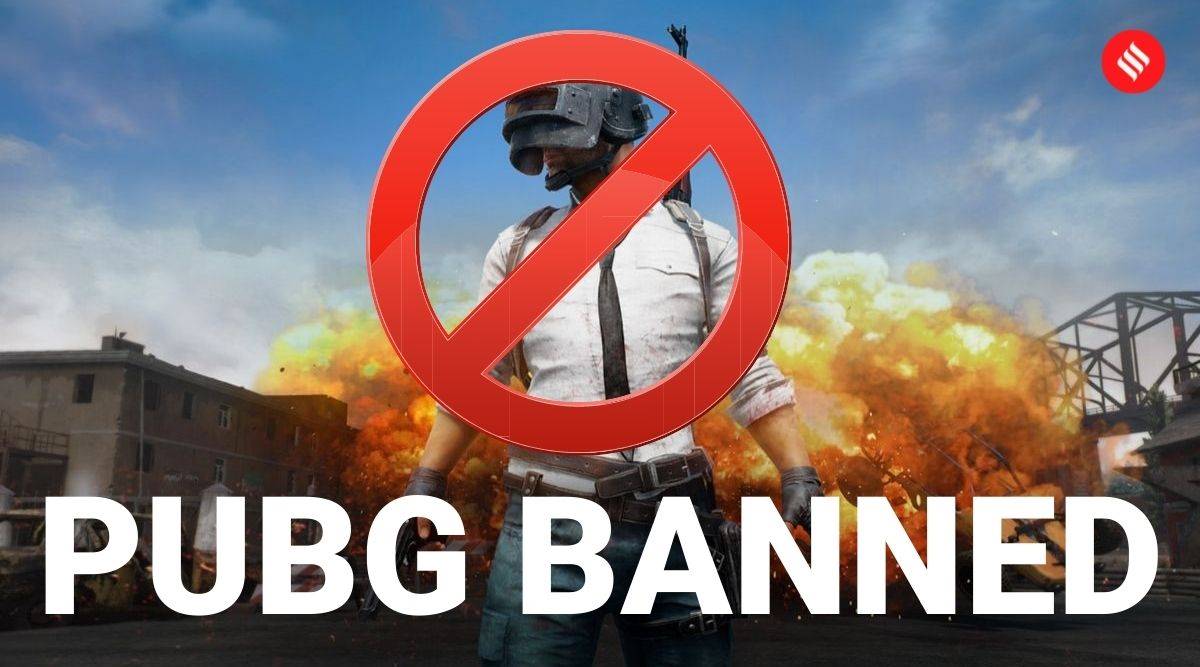 The banned apps include PUBG Mobile, one of the world’s most popular e-games, with India accounting for nearly a quarter — the largest chunk — of its downloads.
The banned apps include PUBG Mobile, one of the world’s most popular e-games, with India accounting for nearly a quarter — the largest chunk — of its downloads.AMIDST continuing tensions with China, New Delhi on Wednesday banned 118 apps with Chinese links, citing concerns over threats to India’s safety and sovereignty. The banned apps include PUBG Mobile, one of the world’s most popular e-games, with India accounting for nearly a quarter — the largest chunk — of its downloads.
Earlier, in June, soon after a faceoff between Indian and Chinese troops at Galwan Valley in Ladakh left 20 Indian soldiers dead, the government had banned 59 apps with China links, including TikTok.
The apps banned in this round include utility apps by Beijing-headquartered APUS Group, popular business card scanning app CamCard, messaging apps like WeChat Work, search engine Baidu and games such as Game of Sultans and Rise of Kingdoms. Chinese gaming giant Tencent Holdings developed PUBG.
“The Ministry of Electronics and Information Technology has received many complaints from various sources, including several reports about misuse of some mobile apps available on Android and iOS platforms for stealing and surreptitiously transmitting users’ data in an unauthorised manner, to servers which have locations outside India,” the IT Ministry said, adding that the mining and profiling of the data was a threat to the country’s security and sovereignty.
The biggest impact of this development will be on Tencent Holdings, which has a number of the banned apps in its portfolio. In addition to WeChat, which was banned in the first round of action against Chinese apps, and PUBG Mobile, the Chinese technology conglomerate is behind games such as Ludo World-Ludo Superstar, Arena of Valor, Chess Rush. Other Tencent apps in the ban list include utility ones such as iPick, VooV Meeting, Tencent Watchlist (a stock market app), Tencent Weiyun, Pitu, and WeChat Work.
Tencent incidentally is one of the biggest investors in Indian consumer Internet ecosystem, having major investments in as many as 15 startups such as Doubtnut, PolicyBazar, Khatabook, Swiggy, Flipkart, Hike, Practo, and Dream11, which is the title sponsor for the 2020 edition of the Indian Premier League. In April 2017, Tencent had invested $700 million in Flipkart while it has invested close to $1100 million along with Softbank in homegrown ride hailing service Ola Cabs.
Tencent did not respond to an e-mail query seeking comment for the story.
The ban on PUBG Mobile will also hurt India’s growing e-sports industry. According to data by SensorTower, PUBG Mobile and the game’s Chinese version, Game For Peace, together have 734 million downloads globally. India ranks first in terms of downloads, generating about 175 million installs as of July, or 24% of the total. China ranked second, with 16.7% of all downloads, while the US ranked third, with 6.4%.
According to a KPMG report, the Indian e-sports industry is expected to grow to Rs 11,800 crore in size by 2023.
The other apps banned on Wednesday include Dawn of Isles, Ludo World-Ludo Superstar, PUBG Mobile Lite, Dank Tanks, Warpath, InNote and Gallery Vault.
The APUS Group, whose apps were also banned, had in September 2015 signed long-term partnership deals with InMobi and entered India. In December next year, it had invested Rs 300 crore in various startups across India, and a year later invested Rs 300 crore again for setting up a research and development unit, as well as a sales office, in Gurgaon.
Baidu, also headquartered in Beijing, is the leading search engine of China, and claims to have close to 195 million active users worldwide, of which about 50 million are present in India.
The master server activities of the 118 apps banned on Wednesday were being tracked by the Indian Cyber Crime Coordination Centre, the Ministry of Home Affairs, the IT Ministry, as well as the Indian Computer Emergency Response Team (Cert-In) for some time now. Based on credible inputs that these apps had been misusing data they collected from users in India, it was decided that they should not be permitted to operate in the country, a senior IT Ministry official said.
PUBG Mobile had earlier drawn criticism for being highly addictive. In January last year, responding to a query on children’s focus shifting from gaming to studies, during an interaction with students and their parents, Prime Minister Narendra Modi had joked: “Yeh PUBG wala hai kya (Is this related to PUBG)?”
Gujarat State Education Minister Bhupendrasinh Chudasama had soon after requested the Centre to let the state impose a ban on online and mobile games like PUBG.
The apps banned in June included short-video sharing platform TikTok. Then too, the ministry had called them a threat to sovereignty and security of the country.